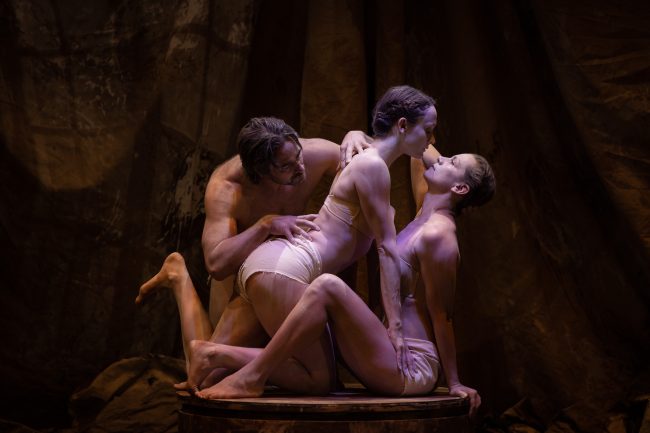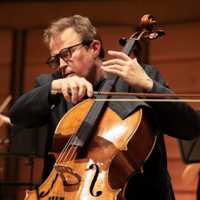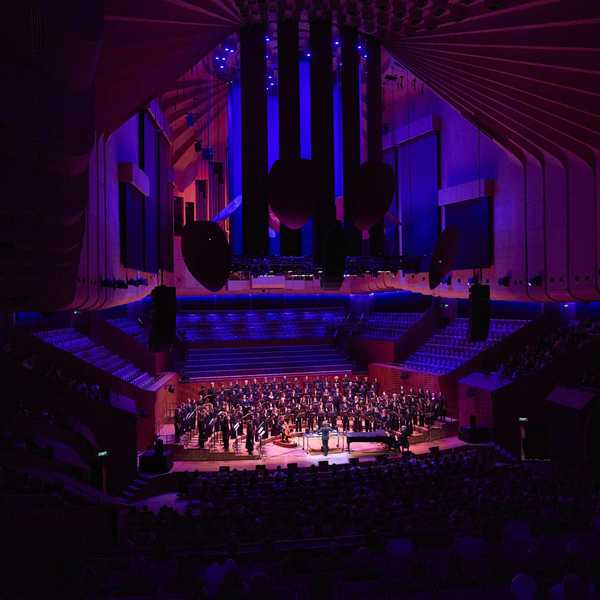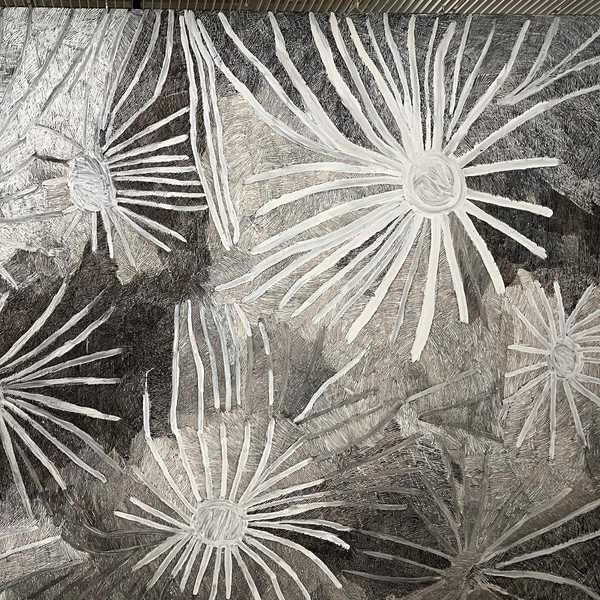Claudel – Sydney Opera House, Saturday 1 May
Reviewed by Paul Neeson
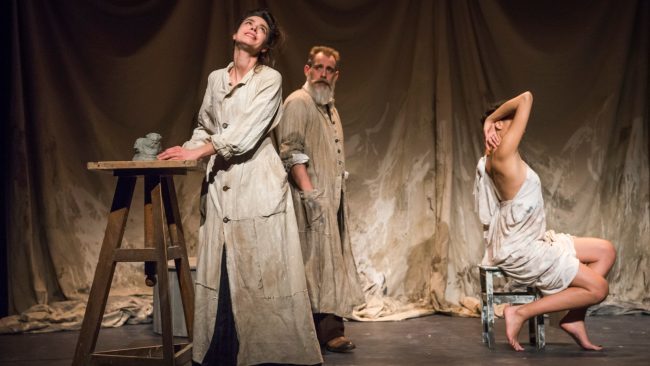 From the opening set of drab painters’ drapes and simple paint-stained wooden furniture, Claudel didn’t promise a colour-filled vibrant theatre piece, but the story of French sculptor, Camille Claudel is one of immense sadness and unfulfilled promise. Maybe writer/director Wendy Beckett’s vision is exactly what is required.
From the opening set of drab painters’ drapes and simple paint-stained wooden furniture, Claudel didn’t promise a colour-filled vibrant theatre piece, but the story of French sculptor, Camille Claudel is one of immense sadness and unfulfilled promise. Maybe writer/director Wendy Beckett’s vision is exactly what is required.
The play opens with Claudel (Imogen Sage) and her two young female sculptor student colleagues meeting the renowned French sculptor Auguste Rodin (Christopher Stollery). While the girls are innocent and naive, the assertiveness and control of Sage’s Claudel are seemingly incongruous with her position as potential student of the master in a restrictive patriarchal late 19th century society. Rodin’s arrogance and misogyny set the tone of the adversity and challenges that Claudel is about to face. However their blossoming sexual attraction is cleverly portrayed as the fight for dominance and control between Stollery and Sage builds. While Rodin ultimately has all the power, Stollery allows the character to breathe and play with the emotions running between them. Sage’s Claudel, on the other hand, is delivered at full force throughout the play until the breakdown where she finally delivers a masterful performance.
It is the characters of Claudel’s brother (Mitchell Bourke) and mother (Tara Morice) that emotionally remove us from the drama unfolding before our eyes and ears. We are never immersed in the complexities of their characters and behaviours, but are left as silent witnesses to deeds and actions that are never fully explained. Why does her brother, at first Claudel’s ally, then capitulate and ultimately betray her? The vexed triangular relationship between Claudel and her parents can never be made flesh when the father doesn’t appear in the play until his coffin is poignantly carried across the stage in a nightmare-like dream sequence. The father is reduced to a mythical godlike ghost, and one questions why? Is that because such a benign character is too contrary to the feminist stance of the tale? A more nuanced storytelling should surely be able to accommodate both by highlighting the inherent contradictions within all of us.
But the real heroine of the piece is the choreography of Meryl Tankard and the three dancers – Kip Gamblin, Dorothea Csutkai and Cloé Fournier. Dressed (almost) in skin coloured fabric, they portray the physical sculptures themselves and also propel the narrative and internal thoughts of Claudel, from the sexual desires for her mentor, to a chilling representation of an abortion and her ultimate mental breakdown. The lighting design of Francois Lenveu separates the physical world from the dream and psychological worlds brought to life on the stage, but his brilliance is best seen when the overhead lighting exposes all the detail of the musculature of the dancers, mirroring the previous discussion between Claudel and Rodin of the importance of finding the perfect line and contour of the model’s muscles.
While the story of Camille Claudel is one that needs telling and retelling in order to bring such a talented artist to the public’s awareness, the canvass of her life from 20 to 78, including her final thirty unproductive years in a mental asylum, is possibly one too large for a 90 minute theatre piece. Beckett’s production is very moving and beautifully realised by a talented team, but ultimately the missing pieces leave us unfulfilled and wanting more.
To listen to Christopher Stollery chat to Paul, click above.
Share "Review: Claudel at the Playhouse Theatre."
Copy

